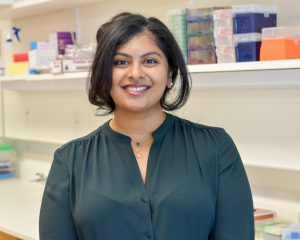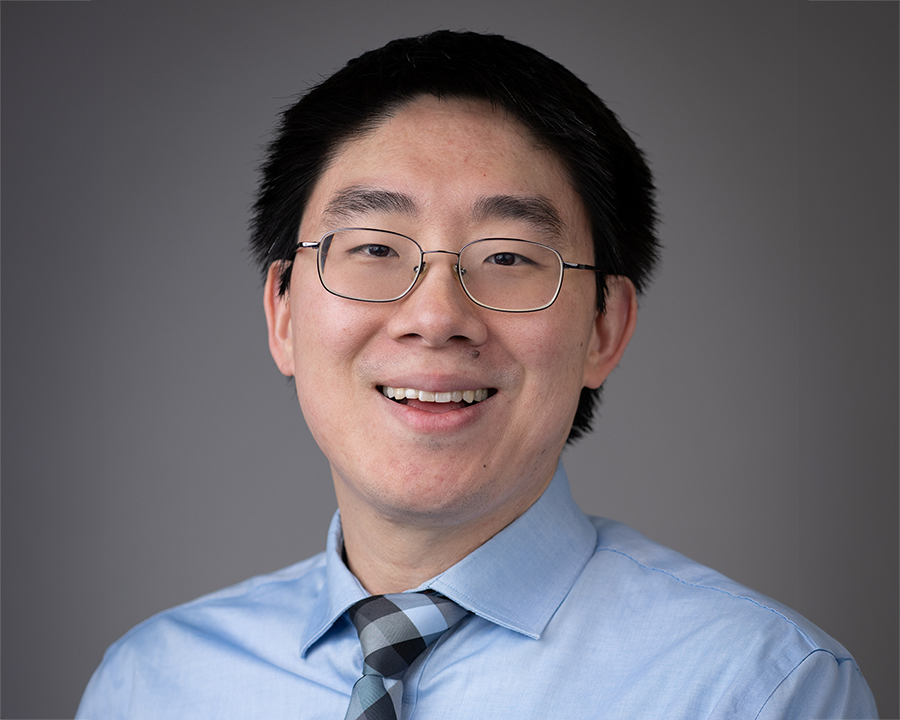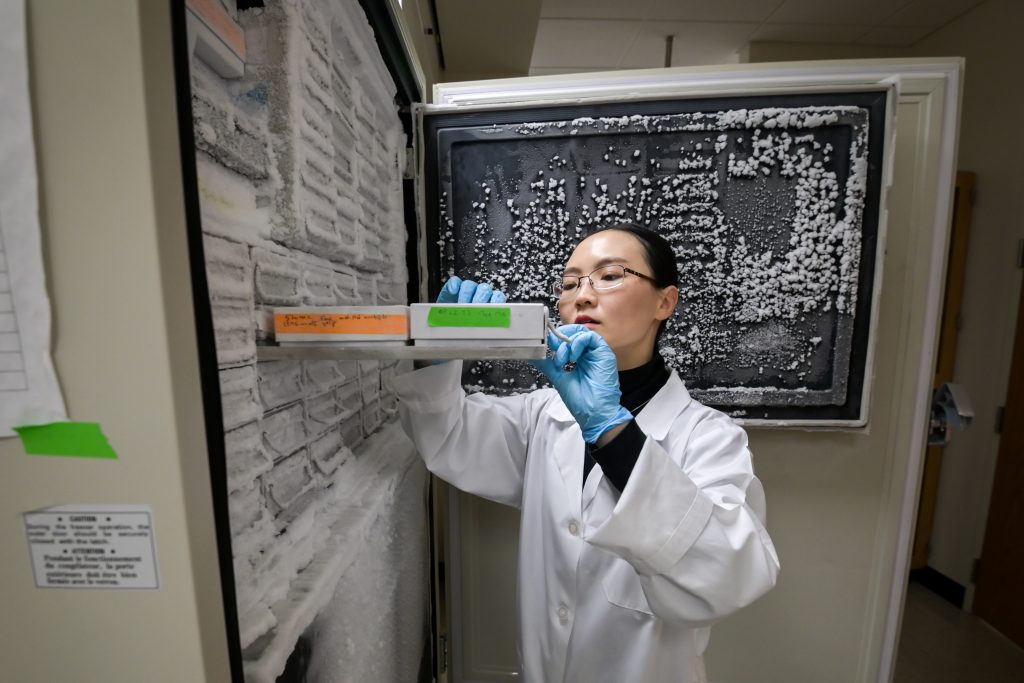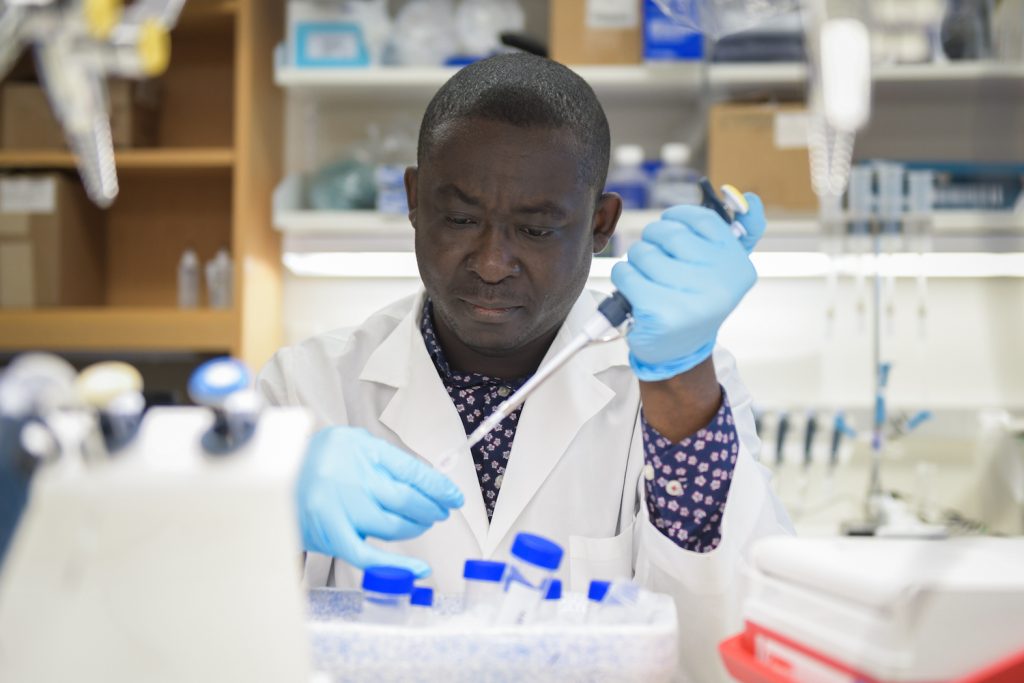
Divya Bezwada, Ph.D.
Divya Bezwada, Ph.D., a former graduate student in the DeBerardinis lab in Children’s Medical Center Research Institute at UT Southwestern (CRI), has been named a 2023 STAT Wunderkind for her work in cancer metabolism. This annual award celebrates early-career scientists and clinicians making groundbreaking discoveries in health and medicine. Dr. Bezwada was selected from among hundreds of nominees across North America.
“I am honored to receive this award. The discoveries we made would not have been possible without the teams I worked with in the lab and clinic, and the patients who generously participated in research-focused clinical trials,” said Dr. Bezwada. “I am grateful to everyone involved, especially my mentor, Ralph DeBerardinis, who gave me the freedom to explore as a graduate student.”
During her time at CRI, Dr. Bezwada made several discoveries related to the metabolism of clear cell renal cell carcinoma (ccRCC)— the most common type of kidney cancer in patients. ccRCC cells are known to have disordered metabolic activities in culture, but Dr. Bezwada’s work is the first to assess metabolic activities directly in human ccRCC. She discovered how these tumors use different fuels to support their growth in patients, and uncovered differences in fuel utilization before and after these tumors metastasize. While ccRCCs growing in the kidney suppress fuel oxidation in the mitochondria, this pathway is re-activated in tumors that metastasize. Dr. Bezwada’s unexpected findings may lead to new ways to prevent ccRCC metastasis, or treat tumors that have already metastasized.
“I cannot think of a more deserving student for the STAT Wunderkind Award,” said Ralph DeBerardinis, M.D., Ph.D., a Professor at CRI and Dr. Bezwada’s mentor. “She is an exceptional scientist and has made important contributions to the field of cancer metabolism. Her work has given rise to a whole series of questions we will try to answer in the coming years.”
Dr. Bezwada, who graduated in May with a Ph.D., will continue her work in cancer biology as a postdoctoral fellow in the lab of Benjamin Cravatt, Ph.D., at Scripps Research in La Jolla, California.



